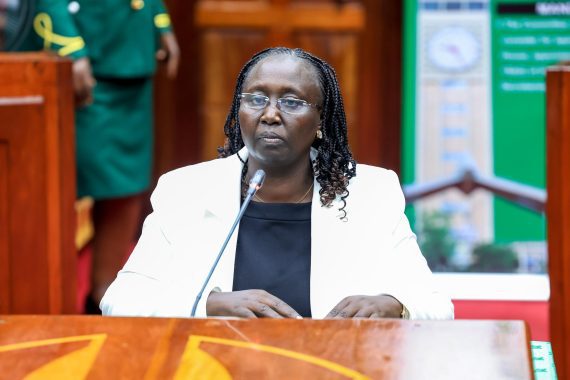New gender Minister not suitable for docket

As expected, members of the National Assembly unanimously endorsed the appointment of Hannah Wendot Cheptumo as Gender, Arts, and Heritage Cabinet Secretary, despite her repugnant belief that victims of femicide are “money-minded” girls.
The 13th Parliament has earned itself the ignominious tag that it is an extension of the Executive, with Speakers of both Houses accused of leaving the Legislature to be captured by the Executive.
Responding to questions on how she would address the alarming rise in killings targeting women, particularly among university students, Cheptumo opined that the victims were partly to blame, claiming many young women fall prey because they are “looking for money.”
Ironically, her remarks come as President William Ruto’s administration is working to find lasting solutions to the crisis of gender-based violence through a newly constituted Technical Working Group on Gender-Based Violence.
The nomination of Cheptumo for the position is, to put it bluntly, a troubling choice.
While appointments to top government positions should ideally be based on merit, leadership qualities and the ability to empathise with marginalised groups, Cheptumo’s controversial remarks regarding femicide victims raise serious concerns about her suitability for the role.
In a country where gender-based violence is a major crisis, the role of Cabinet Secretary for Gender Affairs is vital in advocating for and protecting the rights of women and children.
It requires someone who understands the gravity of gender-related issues, recognises the systemic factors that perpetuate violence against women and champions solutions that prioritise survivors’ welfare.
Cheptumo’s reckless and insensitive rhetoric dangerously distorts the realities many women in Kenya face, as a result of entrenched patriarchal values that see them as disposable objects.
Rather than denounce the growing wave of femicide that has devastated Kenyan families, she chose to blame the victims – young women lured, abused, and murdered – for their own deaths.
Victim-blaming language only reinforces harmful stereotypes and will deter survivors from seeking help, knowing that they will be judged and their trauma minimised.
Kenya deserves leaders who not only recognise the severity of gender-based violence but work tirelessly to eradicate it. Cheptumo is not one such person.














